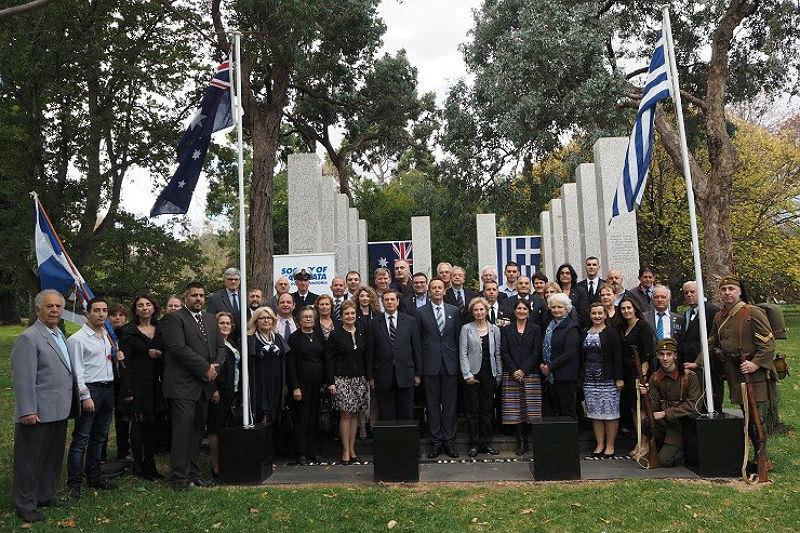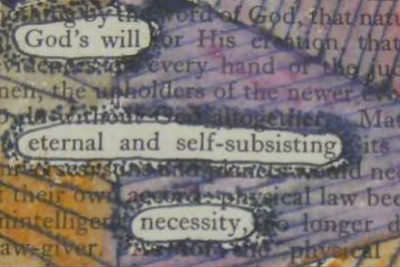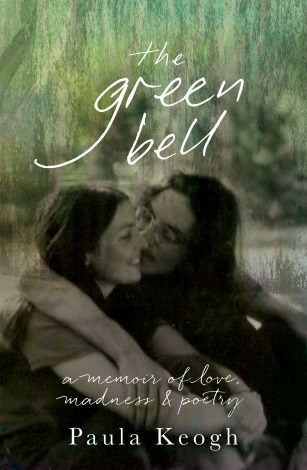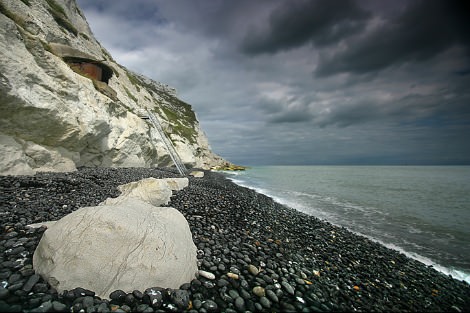Keywords: Poem
There are more than 200 results, only the first 200 are displayed here.
-

INTERNATIONAL
- Gillian Bouras
- 22 May 2018
7 Comments
A little over 77 years ago, Allied forces fighting in northern Greece were overwhelmed by German strength. In Kalamata, for years now there has been a wreath-laying ceremony at a memorial close to the waterfront. It occurs days before the Nakba, the remembrance of Palestinian displacement that this year marked 70 years.
READ MORE 
-

ARTS AND CULTURE
- Gillian Bouras
- 04 May 2018
7 Comments
Philip Larkin spent 30 years as a librarian, but famously wrote a rebellious poem in which he asks plaintively: 'Why should I let/the toad work/Squat on my life?' Technology is not the only force that shapes our destinies, an idea I need to remind myself of whenever I start worrying about the future of my children and grandchildren.
READ MORE 
-

ARTS AND CULTURE
- Fitzroy Community School students
- 04 December 2017
2 Comments
These seven poems were written by students of the Fitzroy Community School in Melbourne. They were among the many submitted to the Dorothea MacKellar Poetry Awards, the oldest and largest annual national poetry competition in Australia. This year's subject was 'All Over the World'.
READ MORE 
-

ARTS AND CULTURE
- Talitha Fraser
- 27 November 2017
Did you see the news today? Law failed love. Let love be law.
READ MORE 
-

AUSTRALIA
- Andrew Hamilton
- 26 November 2017
21 Comments
The refugees on Manus Island are not simply actors in a dramatic poem. They are human beings like us to whom we have a responsibility. They could have enriched us by their ingenuity and bravery had we accepted them. We should continue to listen to their voices and keep them in our hearts.
READ MORE 
-

ARTS AND CULTURE
- N. N. Trakakis
- 18 September 2017
1 Comment
We do not know what we want. And we do not want what we know. Like shadows hanging in the air, their threads of reality unravelling, absenting themselves from the world. She said time erases life. He said let's be timeless. She said it would be dark. He said he hated daylight. She said it would be lonely. He said he prostituted his mind talking to people. She said he is mad. He said may God preserve him from sanity. She said: God will. And God did.
READ MORE 
-

ARTS AND CULTURE
- Andrew Hamilton
- 14 September 2017
14 Comments
Keogh's first onset of madness and loss of identity came with Gilroy's death in a psychiatric institution after intensive, probably reckless, treatment by shock therapy and drugs. Both young women were then in the early years of their university course. The encompassing Catholic framework of meaning taken for granted during childhood fell away under their analytical questioning, and their belief in rationality was tested by the violent social changes of 1968.
READ MORE 
-

ARTS AND CULTURE
- Grant Fraser
- 04 September 2017
8 Comments
Recently published letters have revealed that although Mother Teresa of Calcutta spent many years in her inspiring ministry, she felt, during much of that time, a profound spiritual emptiness.
READ MORE 
-

ARTS AND CULTURE
- John Ellison Davies
- 02 August 2017
7 Comments
Why do we get out of bed in the morning? Out of habit certainly, but at some level we have to believe that in the day ahead we may make some small incremental progress toward our goals, whatever they may be. A small improvement in the garden. The flourish of a job well done. We must have hope that we will find some joy in the day, some satisfaction that brings a sense of well-being.
READ MORE 
-

ARTS AND CULTURE
- Gillian Bouras
- 19 May 2017
13 Comments
Does poetry still matter in our Twitter society? Such was the question that caught my eye during a random Google session. The answers consisted of some lugubrious comments to the effect that poetry, like the novel, is dying. It is hard to believe that poets were once considered celebrities, and that poetry was once a pre-eminent form of entertainment. We also generally refrain from mentioning poetry and politics in the same breath. 'Twas not always thus.
READ MORE 
-

ARTS AND CULTURE
- Jena Woodhouse and Ian C. Smith
- 24 April 2017
2 Comments
Now, the forces of annihilation once again cohere, as if this were a valve in history's cardiac arrhythmia that faltered and unleashed a haemorrhage of horror, trauma, fear. The damask roses bloom unharvested in devastated fields. Their perfume cannot mask the stench that permeates the air, the atmosphere of dread, of mute despair. But when the juggernaut of war is redeployed elsewhere, the fragrant fields will come into their own, if there are hands to care.
READ MORE 
-

ARTS AND CULTURE
- Peter Gebhardt
- 18 April 2017
4 Comments
It's a bleak sad day, That special voice has been taken away That voice that saw so much, Waged war against the witless and their wrongs, That smothered our lives and hopes And that voice will still sing his songs. Which we are free to hear for ages on.
READ MORE 